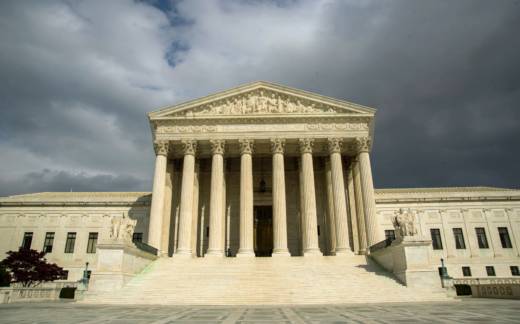What are Blaine Amendments?
Thirty-eight states have versions of the law that could come under fire in Trinity Lutheran. Many were passed with hints of (or, at times, open) hostility toward Catholics in general and a suspicion of private Catholic schools in particular. California courts have consistently upheld the state's Blaine Amendment, even blocking funding to non-religious entities like the Stanford School of Medicine.
Defenders of the laws argue that they provide important protections that should extend even to areas as secular as playgrounds.
"The reason why the state has the ability to make this choice is it can decide that it does not want to entangle itself with decisions about how churches use their money," said Daniel Mach, director of the Program on Freedom of Religion and Belief with the ACLU, which supports Missouri in the case.
Opening the Door for Vouchers?
For many legal experts, a wide ruling in the Trinity Lutheran case would raise another issue: school vouchers. If the court strikes down Blaine Amendments generally, it could make it legal for California to grant students a voucher (or money) to use at the school of their choice. Currently, a voucher program would require a state constitutional amendment.
Even if a ruling at the Supreme Court level makes California's ban on religious school funding unconstitutional, there is little indication that a voucher program would be well received in the state. It's doubtful Gov. Jerry Brown and the Democratic Legislature would advocate for the shift, and California voters have twice voted down a private school voucher initiative. The last time the issue was on the ballot in 2000, voters rejected the school choice initiative by a 71 percent to 29 percent margin.
But many legal experts believe the addition of Neil Gorsuch to the nation's highest court could at least chip away at the legal protection behind one of California's original statutes.
“One of the areas where Neil Gorsuch as a federal court of appeals judge was most often on the conservative side was on religion questions," said Chemerinsky. "He very much was siding with religion, in terms of there being able to be more aid from government, siding with religion in terms of their challenges based on free exercise.”
Supporters of the Lutheran Church argue that the strict church-state wall discriminates against religious schools.
"It is burdensome on allowing parents to choose how they want their children educated," said Meriem Hubbard, a senior attorney with the Pacific Legal Foundation, which filed an amicus brief on behalf of Trinity Lutheran. She says a ruling against Missouri "could open a lot of opportunities for parents to send their children to the school of their choice."
